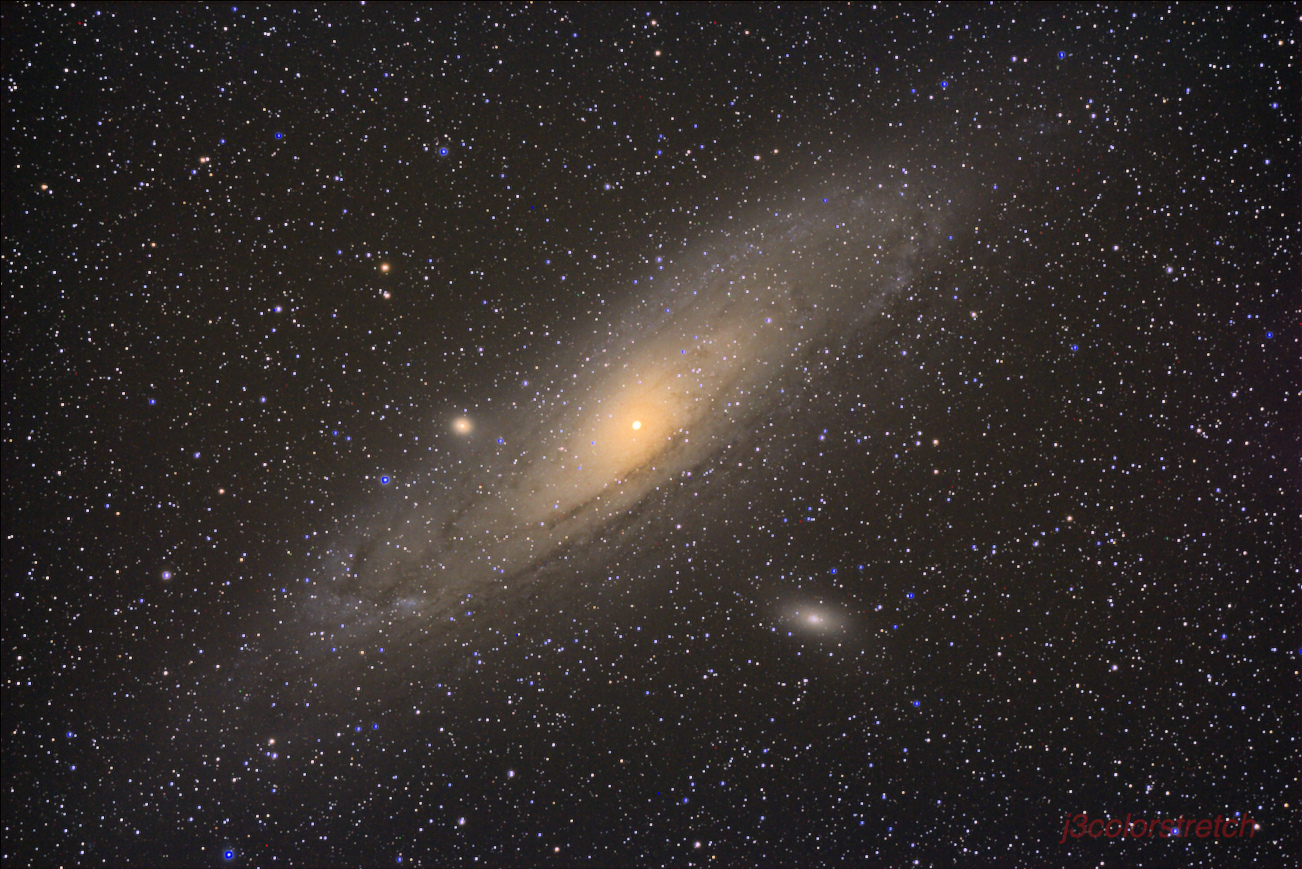Stretches astronomical images while preserving the colors.
https://joxda.github.io/j3colorstretch

The algorithms are based on Roger N. Clark's rnc-color-stretch, which can be obtained from https://clarkvision.com/articles/astrophotography.software/rnc-color-stretch/ , and which is licenced under the GPL.
There are minor changes and updates to the algorithms, but the major difference is that this program here does not rely on davinci. It is coded with c++ using OpenCV and is significantly faster.
You can try the binaries provided here
These were compiled on several Ubuntu Desktop and macOS systems and statically linked to the OpenCV libraries, so that there should not be any additional requirements. Once you downloaded the tar archive, you can unpack it (tar xzvf j3colorstretch*tgz) and move the batch script and j3colorstretch binary to your PATH. Alternatively you can download the source code from here and follow the instructions for compiling and installing below.
Developers can get a quick overview over the code in the documentation here.
- OpenCV (version 3.0.0 or later)
- cmake (2.8.12 or later)
For example, on a fresh installation of Ubuntu 18.04 Desktop the following installs the requirements:
sudo apt install build-essential cmake libopencv-dev
On a macos with homebrew the following command should work:
brew install cmake opencv
Once the requirements are fulfilled, the code should compile simply by the following sequence
cmake .
makeIf cmake fails to find OpenCV even though it is installed, it should help to modify the OpenCV_DIR path in the file CMakeList.txt to the path where the file OpenCVConfig.cmake can be found.
The make command creates the executable j3colorstretch, if successful. It can be installed by running sudo make install.
Running the executable without any parameters prints out the following help message:
Usage: j3colorstretch [params]
--ccf, --color (value:1.0)
default enhancement value
-f
force to overwrite output file
-h, --help, --usage
print this message
--min
set minimum in all channels (in 16bit)
--minb
set minimum b (in 16bit)
--ming
set minimum g (in 16bit)
--minr
set minimum r (in 16bit)
--ncc, --nocolorcorrect
turn off color correction
--no-display, -x
no display
-o, --output
output image (without the result will be displayed, supports jpg and tif)
--ri, --rootiter (value:1)
number of iterations on applying rootpower - sky
--rootpower, --rp (value:6.0)
power factor: 1/rootpower
--rootpower2, --rp2
use this power on iteration 2
--sc, --scurvepower (value:5.0)
scurve power odd iterations
--sc2, --scurvepower2 (value:3.0)
scurve power even iterations
--scurveiter, --si (value:0)
number of iterations on applying scurve - sky
--scurveoffset, --so (value:0.42)
scurve offset odd iterations
--scurveoffset2, --so2 (value:0.22)
scurve offset even iterations
--skylevelfactor, --sl (value:0.06)
sky level relative to the histogram peak
--tc, --tonecurve
application of a tone curve
-v, --verbose
print some progress information
--zerosky (value:4096.0)
desired zero point on sky, sets all channels
--zeroskyblue
desired zero point on sky, bue channel
--zeroskygreen
desired zero point on sky, green channel
--zeroskyred
desired zero point on sky, red channel
To stretch an image the image name needs to be given as argument with any of the optional parameters listet above.
j3colorstretch [parameters] IMAGEFILENAMEThe software should work with any file format that is understood by OpenCV, but in the most common usage case it will be a 16bit per channel RGB tiff file.
A bash script batch-stretch is provided for batch processing. It includes an option to convert raw images with dcraw before running j3colorstretch. Its call sequence is:
batch-stretch dir ext (tif or jpg) [dcraw] [j3colorstretch parameters]
It searches images with the extension ext in the directory dir and runs (dcraw if the optional dcraw parameter is given and) j3colorstretch on them with the given optional parameters and saves the outputs as jpg or tif in the same directory as the original images.

